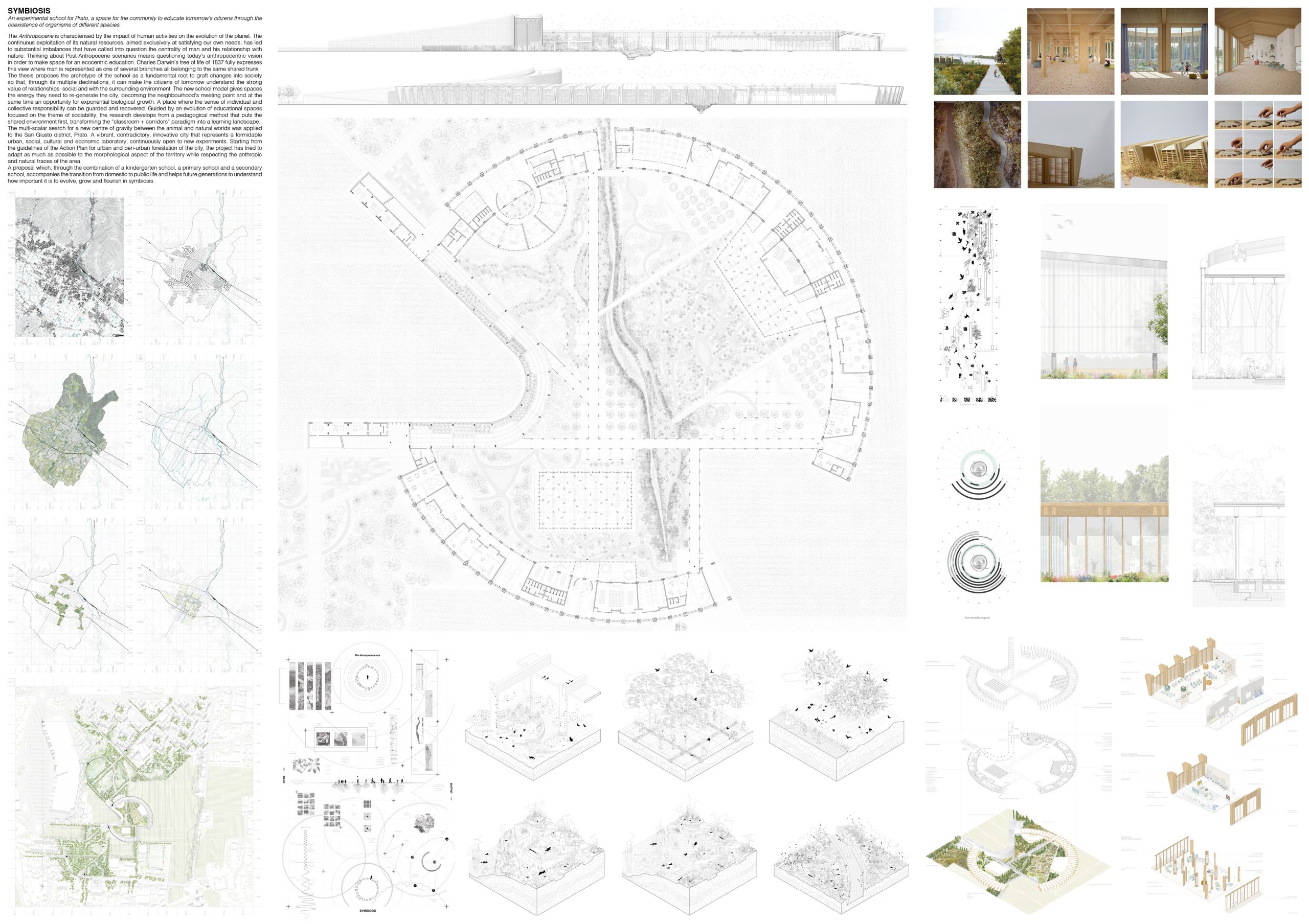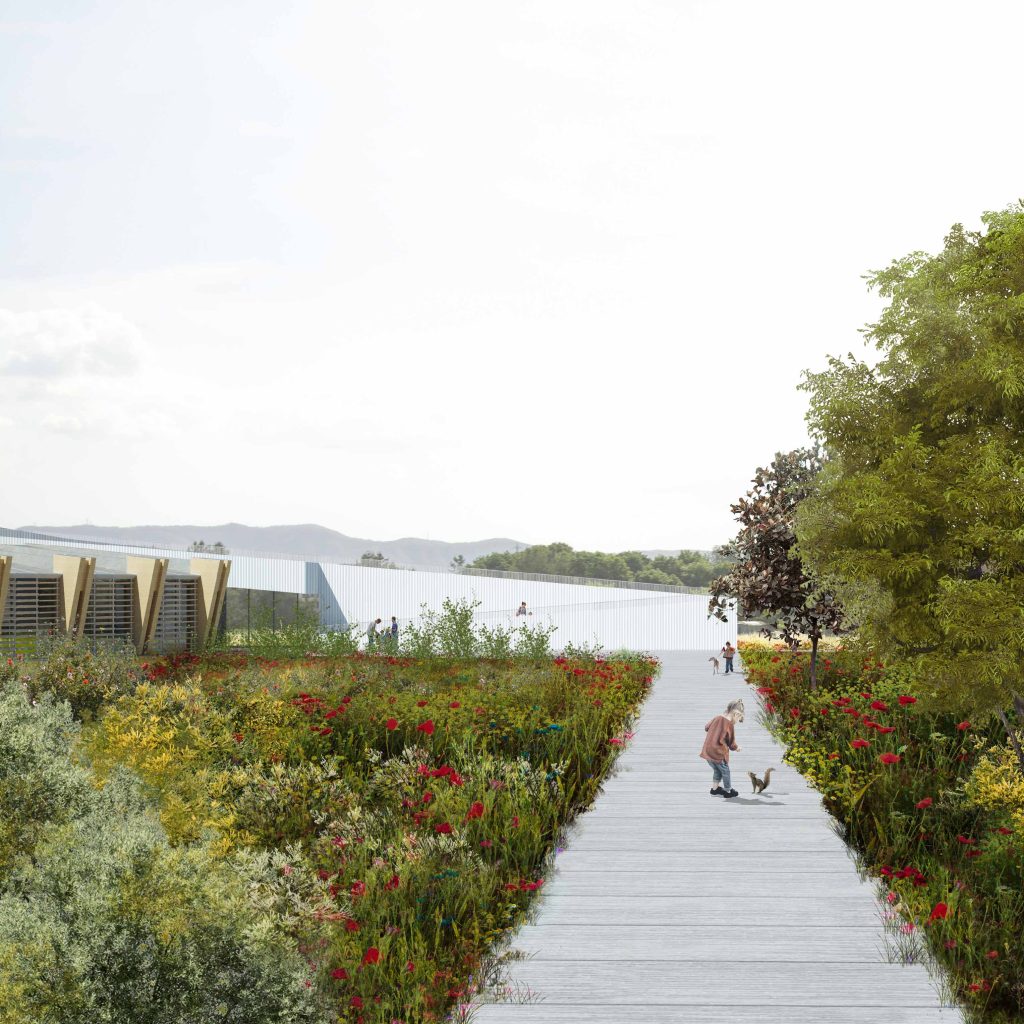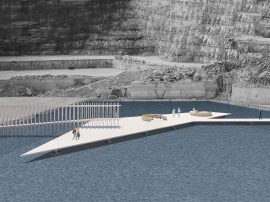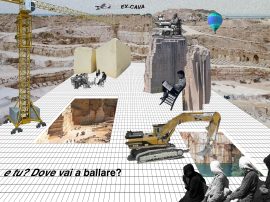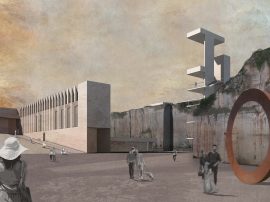The Anthropocene is characterised by the impact of human activities on the evolution of the planet. The continuous exploitation of its natural resources, aimed exclusively at satisfying our own needs, has led to substantial imbalances that have called into question the centrality of man and his relationship with nature. Thinking about Post-Antropocene scenarios means questioning today’s anthropocentric vision in order to make space for an ecocentric education. Charles Darwin’s tree of life of 1837 fully expresses this view where man is represented as one of several branches all belonging to the same shared trunk.
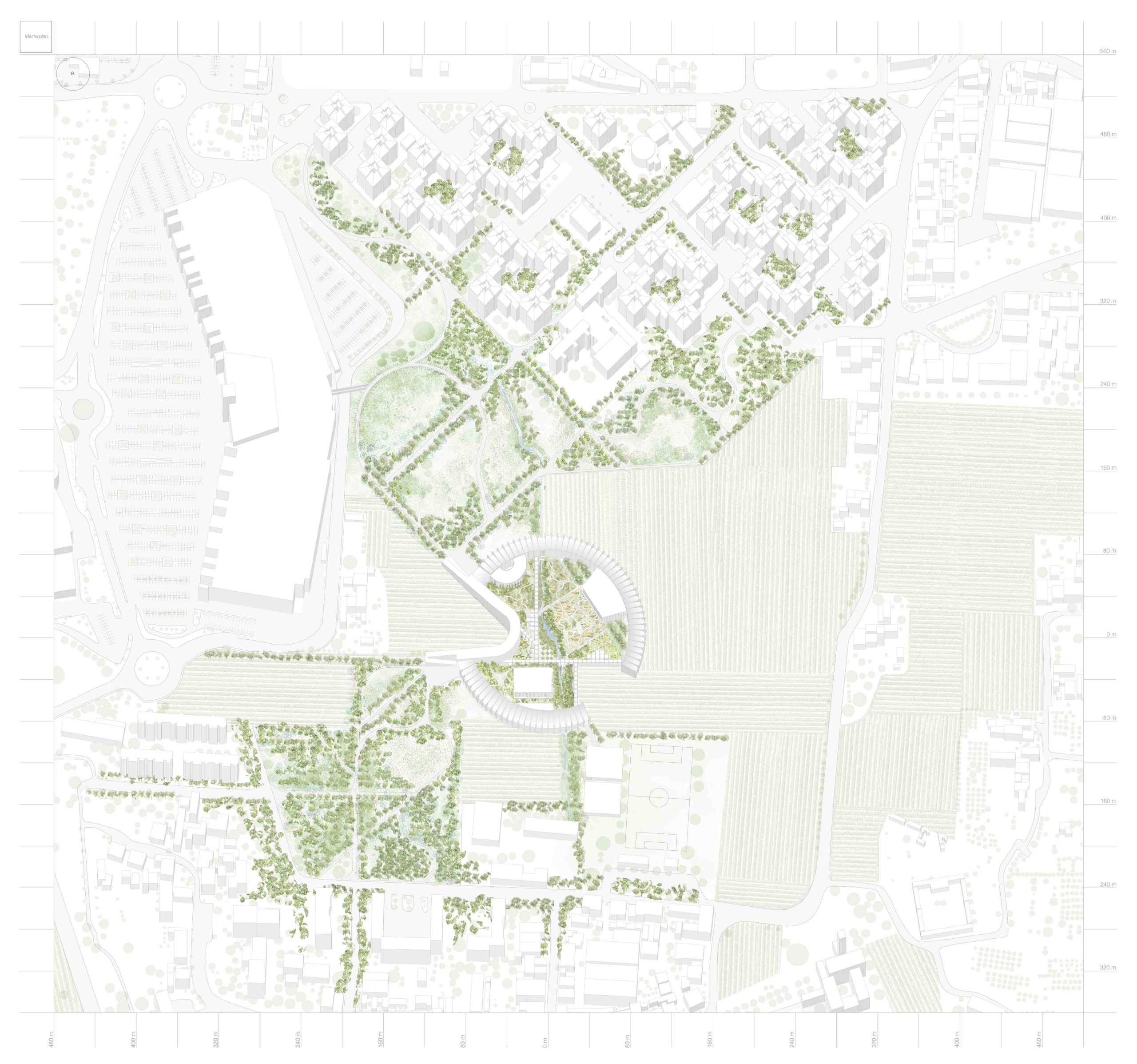
The thesis proposes the archetype of the school as a fundamental root to graft changes into society so that, through its multiple declinations, it can make the citizens of tomorrow understand the strong value of relationships: social and with the surrounding environment. The new school model gives spaces the energy they need to re-generate the city, becoming the neighbourhood’s meeting point and at the same time an opportunity for exponential biological growth. A place where the sense of individual and collective responsibility can be guarded and recovered. Guided by an evolution of educational spaces focused on the theme of sociability, the research develops from a pedagogical method that puts the shared environment first, transforming the “classroom + corridors” paradigm into a learning landscape.
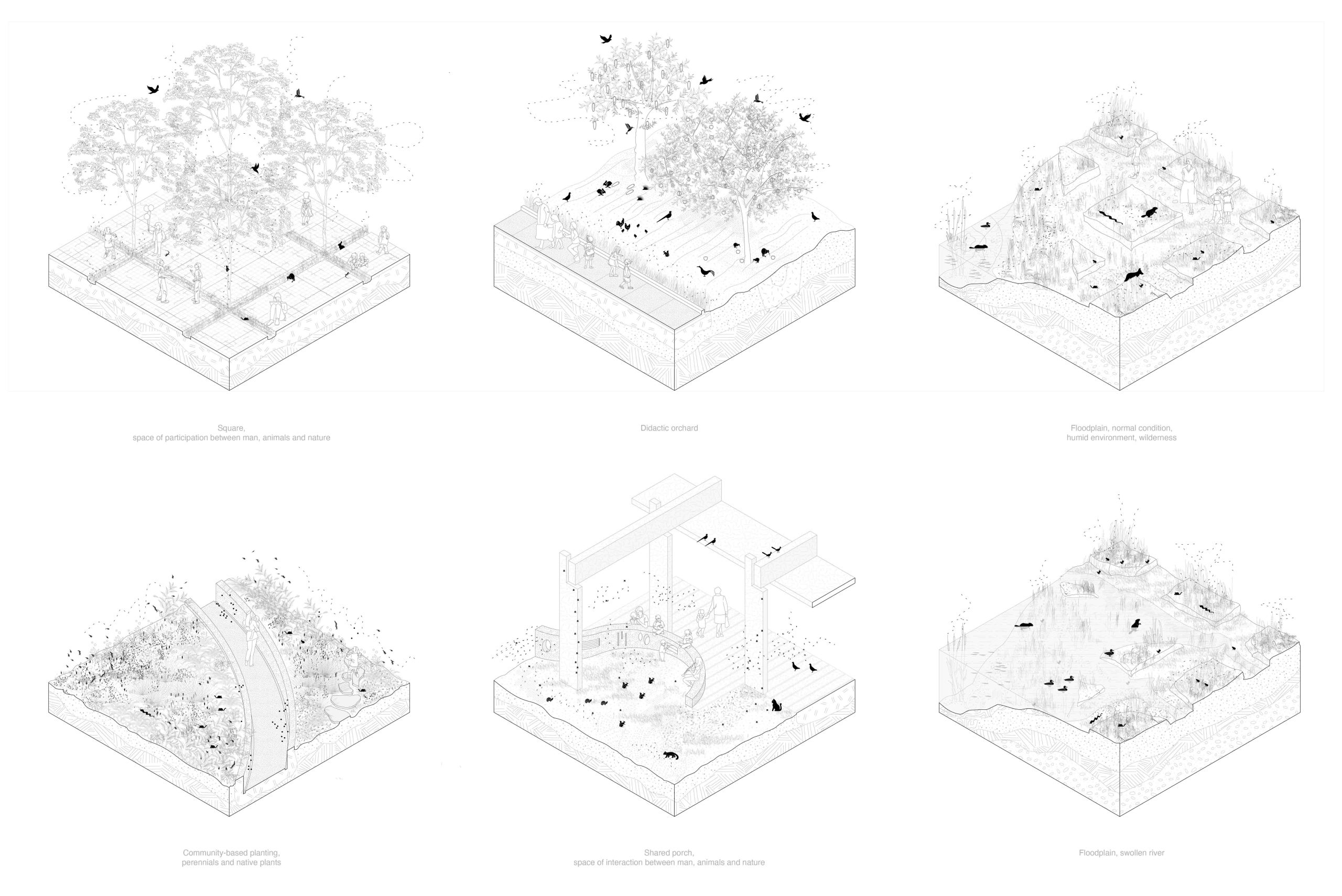
The multi-scalar search for a new centre of gravity between the animal and natural worlds was applied to the San Giusto district, Prato. A vibrant, contradictory, innovative city that represents a formidable urban, social, cultural and economic laboratory, continuously open to new experiments. Starting from the guidelines of the Action Plan for urban and peri-urban forestation of the city, the project has tried to adapt as much as possible to the morphological aspect of the territory while respecting the anthropic and natural traces of the area. A proposal which, through the combination of a kindergarten school, a primary school and a secondary school, accompanies the transition from domestic to public life and helps future generations to understand how important it is to evolve, grow and flourish in symbiosis.
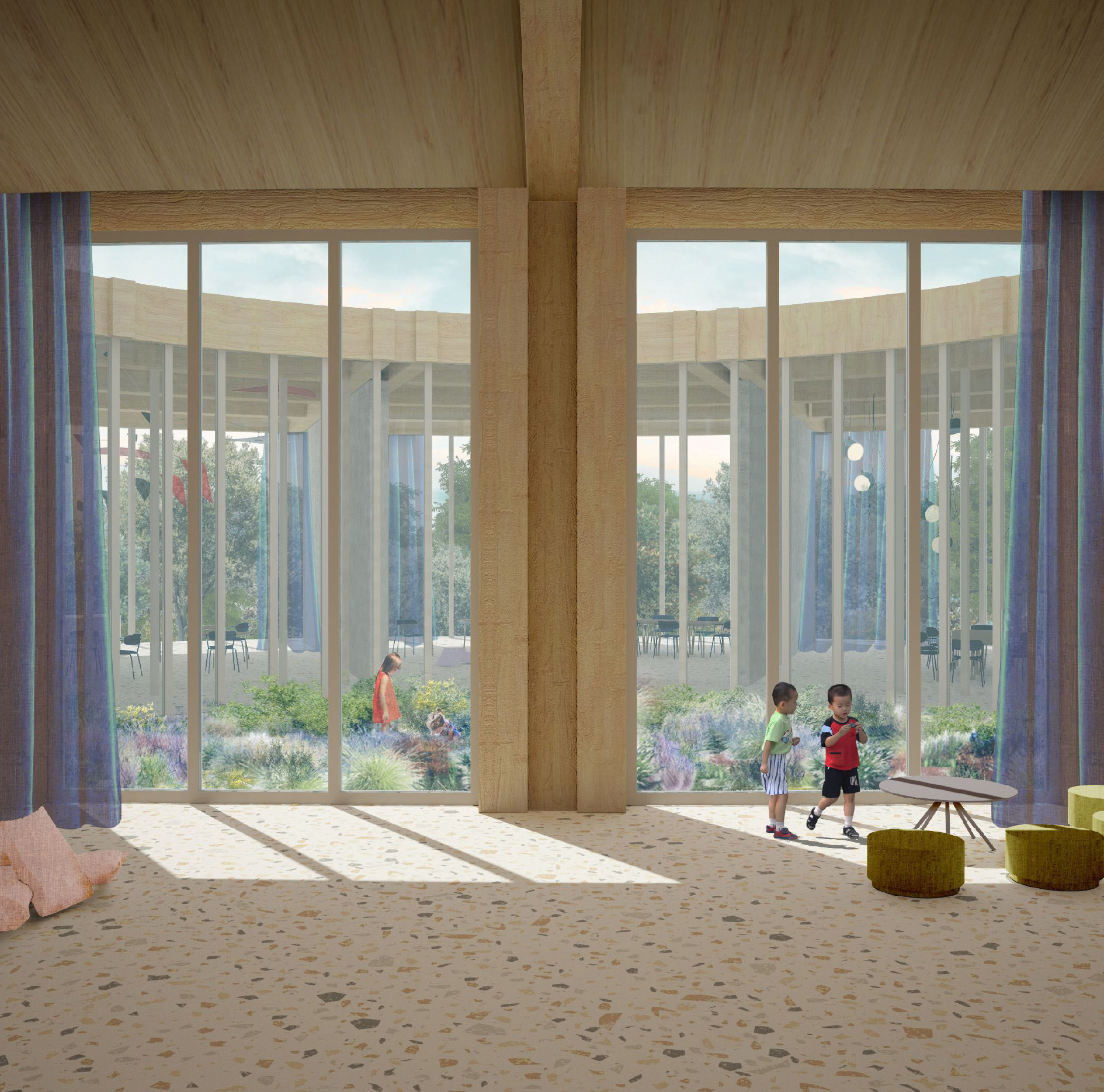
The Board:
